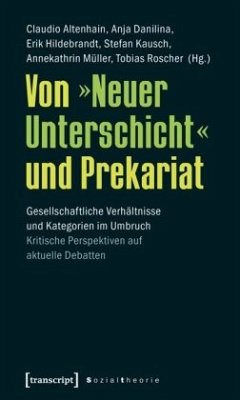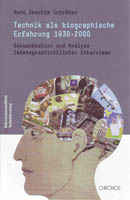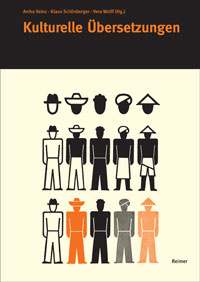CfP: 22C3 - Private Investigations
22nd Chaos Communication Congress
December 27th to 30th, 2005
Berlin, Germany
http://www.ccc.de/congress/2005/
The Chaos Communication Congress is the annual congress of the Chaos Computer Club e.V. (CCC). The Congress has established itself as the "European Hacker Conference" assembling people from all over the world.
Even more important, the Congress is a great party bringing together the brightest heads of a variety of cultures and interests strengthening the idea of cross-culture inspiration and borderless networking. 22C3 is fun.
Hacking
The 'Hacking' domain addresses topics dealing with technology, concentrating on current research with high technical merit. Traditionally, the majority of all talks held tend to be drawn from this domain.
Topics in this domain include but are in no way limited to: network and system security, programming, hardware hacking, applied cryptography and creative use of technology in an unintended way in general.
Science
The 'Science' domain deals with current or future objects of scientific research that have the potential to radically change our lives, be it basic research or conducted for the industry.
We are looking for talks and papers on the current state of the art in this domain, covering subjects such as nano technology, quantum computing, high frequency physics, bio technology, brain-computer interfaces, automated analysis of surveillance cctv, etc.
Society
This domain deals with the state of society itself. Anything about politics and sociology with a relevance for hackers would go in here.
Possible topics could include wire tapping laws, surveillance practices, net politics, intellectual property and copyright issues, effects of technology on kids etc.
Culture
Dealing with cultural mind expansion, this domain adresses to the fringe of the technoverse. Examples would be Diskordianism, geek entertainment, video game culture, computer music, pixel art, and literature for hackers.
Community
The Chaos Communication Congress invites developers, projects and activists to present themselves and their topics at the Congress.
Developer groups are also encouraged to ask for support to hold smaller on-site developer conferences and meetings in the course of the Congress.
Audio and video recordings of each lecture will be published online as well in various formats. All material will be available under the Creative Commons Attribution-NonCommercial-NoDerivs 2.0 Germany license allowing free non-commercial redistribution of the material as long as the original credit to authors and publishers is retained.
Licence URI: http://creativecommons.org/licenses/by-nc-nd/2.0/de/
If you'd like to publish your work under a more liberal license, you should state this with your submission. See below for submission guidelines.
You can find the perliminary agenda at http://www.ccc.de/congress/2005/ You will find also information on the registration procedure for participants here.
For further information and questions please feel free to contact 22c3-content@cccv.de.
We are looking for speakers who can give lectures and/or workshops in either English or German. 22C3 is an international event, so we have a certain focus on having a large share of talks in English, for the benefit of our growing number of international guests. However, the quality of presentation is more important then language. So if you (or your past audience) believe that presenting in English will affect the value or understandability of your talk, please choose German.
Lecture Requirements
Lectures should not exceed 45 minutes plus up to 10 minutes for Q&A. Longer timeslots are possible if we feel the topic demands it (please remark on submission). Workshops should include a talk on the basic principles and a practical hands-on section.
Submitters are asked to submit their application online at the website http://www.ccc.de/congress/2005/. Your application should include the following information:
Required speaker information
Lecture information
Papers
Accepted speakers can optionally hand in a paper which will be published with an ISBN in the 22C3 Proceedings. Papers will be accepted in Portable Document Format (PDF) only and should be around 5 pages. The PDF file must not contain passwords or other restrictions. Paper size should be DIN A4 in portrait orientation. All margins must be set to at least 2 cm (0.78 inches). Pictures should be greyscale and up to 300dpi. Apart from that, you are free to use any layout you want.
Slides
Accepted speakers are asked to hand in slides used in their talks. Please use a well-known format for your slides.
10/1/2005 Submission due
11/1/2005 Final notification of acceptance (or earlier)
12/1/2005 Final papers/presentations due
12/27/2005 - 12/30/2005 Chaos Communication Congress
December 27th to 30th, 2005
Berlin, Germany
http://www.ccc.de/congress/2005/
Overview
The 22nd Chaos Communication Congress (22C3) is a four-day conference on technology, society and utopia. The Congress offers lectures and workshops on a multitude of topics including (but not limited to) information technology, IT-security, internet, cryptography and generally a critical-creative attitude towards technology and the discussion about the effects of technological advances on society.The Chaos Communication Congress is the annual congress of the Chaos Computer Club e.V. (CCC). The Congress has established itself as the "European Hacker Conference" assembling people from all over the world.
Even more important, the Congress is a great party bringing together the brightest heads of a variety of cultures and interests strengthening the idea of cross-culture inspiration and borderless networking. 22C3 is fun.
Topics
The 22C3 conference program is roughly divided into five separate categories. These categories should serve as guidelines for your submissions and as a help to our visitors. However, it is not mandatory for your talk to exactly match the descriptions below. Anything that is interesting for our audience will be strongly considered.Hacking
The 'Hacking' domain addresses topics dealing with technology, concentrating on current research with high technical merit. Traditionally, the majority of all talks held tend to be drawn from this domain.
Topics in this domain include but are in no way limited to: network and system security, programming, hardware hacking, applied cryptography and creative use of technology in an unintended way in general.
Science
The 'Science' domain deals with current or future objects of scientific research that have the potential to radically change our lives, be it basic research or conducted for the industry.
We are looking for talks and papers on the current state of the art in this domain, covering subjects such as nano technology, quantum computing, high frequency physics, bio technology, brain-computer interfaces, automated analysis of surveillance cctv, etc.
Society
This domain deals with the state of society itself. Anything about politics and sociology with a relevance for hackers would go in here.
Possible topics could include wire tapping laws, surveillance practices, net politics, intellectual property and copyright issues, effects of technology on kids etc.
Culture
Dealing with cultural mind expansion, this domain adresses to the fringe of the technoverse. Examples would be Diskordianism, geek entertainment, video game culture, computer music, pixel art, and literature for hackers.
Community
The Chaos Communication Congress invites developers, projects and activists to present themselves and their topics at the Congress.
Developer groups are also encouraged to ask for support to hold smaller on-site developer conferences and meetings in the course of the Congress.
Publication
The Chaos Communication Congress Proceedings are published on paper and online on the Internet. Only talks and presentations that were actually accepted will be published.Audio and video recordings of each lecture will be published online as well in various formats. All material will be available under the Creative Commons Attribution-NonCommercial-NoDerivs 2.0 Germany license allowing free non-commercial redistribution of the material as long as the original credit to authors and publishers is retained.
Licence URI: http://creativecommons.org/licenses/by-nc-nd/2.0/de/
If you'd like to publish your work under a more liberal license, you should state this with your submission. See below for submission guidelines.
Further Information
Since the Chaos Communication Congress is a non-profit oriented event, we are unfortunately unable to pay any fees. Help on travel expenses and accomodation is generally possible but is to be agreed upon after acceptance of the lecture/workshop.You can find the perliminary agenda at http://www.ccc.de/congress/2005/ You will find also information on the registration procedure for participants here.
For further information and questions please feel free to contact 22c3-content@cccv.de.
Submissions
LanguageWe are looking for speakers who can give lectures and/or workshops in either English or German. 22C3 is an international event, so we have a certain focus on having a large share of talks in English, for the benefit of our growing number of international guests. However, the quality of presentation is more important then language. So if you (or your past audience) believe that presenting in English will affect the value or understandability of your talk, please choose German.
Lecture Requirements
Lectures should not exceed 45 minutes plus up to 10 minutes for Q&A. Longer timeslots are possible if we feel the topic demands it (please remark on submission). Workshops should include a talk on the basic principles and a practical hands-on section.
Submitters are asked to submit their application online at the website http://www.ccc.de/congress/2005/. Your application should include the following information:
Required speaker information
- Name: Full name of speaker
- Public Name: Name you'd like to see published at 22C3
- Other Names: nicknames, titles etc.
- Contact information
- Primary E-Mail address
- Phone number(s)
- Instant messaging address(es)
- A photo, square format, min. 128x128 pixels (optional)
- Public home page, weblog and other speaker-related websites
- Short Info: Compact description of speaker (one sentence)
- Bio: Biography or other background information speaker
- Postal address
- Bank information (for money transfer)
- Expected day of arrival and departure
Lecture information
- Title: Name of event or lecture (max 40 letters)
- Subtitle: Additional title description (a couple of words, optional) (max. 100 letters)
- Abstract: An abstract of the event's content (max. 250 letters)
- Description: A longer and detailed description of the event's content (250 to 500 words)
- Please state if you are going to submit a paper to be included in the 22C3 Proceedings
- Please state if you are going to use slides in your talk and in which format you are going to provide a copy
- Duration of your talk
- Links to background information on the talk
- Target Group: Beginners, Advanced Users, Pros
- Resources you need for your talk (Internet, digital projector, overhead projector, pens, assitant personal, presentation computer)
- Related talks at 22C3 you know of (including previously submitted talks by yourself)
- A lecture logo, square format, min. 128x128 pixels (optional)
Papers
Accepted speakers can optionally hand in a paper which will be published with an ISBN in the 22C3 Proceedings. Papers will be accepted in Portable Document Format (PDF) only and should be around 5 pages. The PDF file must not contain passwords or other restrictions. Paper size should be DIN A4 in portrait orientation. All margins must be set to at least 2 cm (0.78 inches). Pictures should be greyscale and up to 300dpi. Apart from that, you are free to use any layout you want.
Slides
Accepted speakers are asked to hand in slides used in their talks. Please use a well-known format for your slides.
Dates and deadlines
The deadline for submission is October 1st, 2005. Notification of acceptance will be sent by e-mail on November 1st, 2005 the latest. However, you may very well get your notification earlier than that if needed. Final papers or slides are due by December 1st, 2005.10/1/2005 Submission due
11/1/2005 Final notification of acceptance (or earlier)
12/1/2005 Final papers/presentations due
12/27/2005 - 12/30/2005 Chaos Communication Congress
annekewolf - 16. Aug, 23:46















